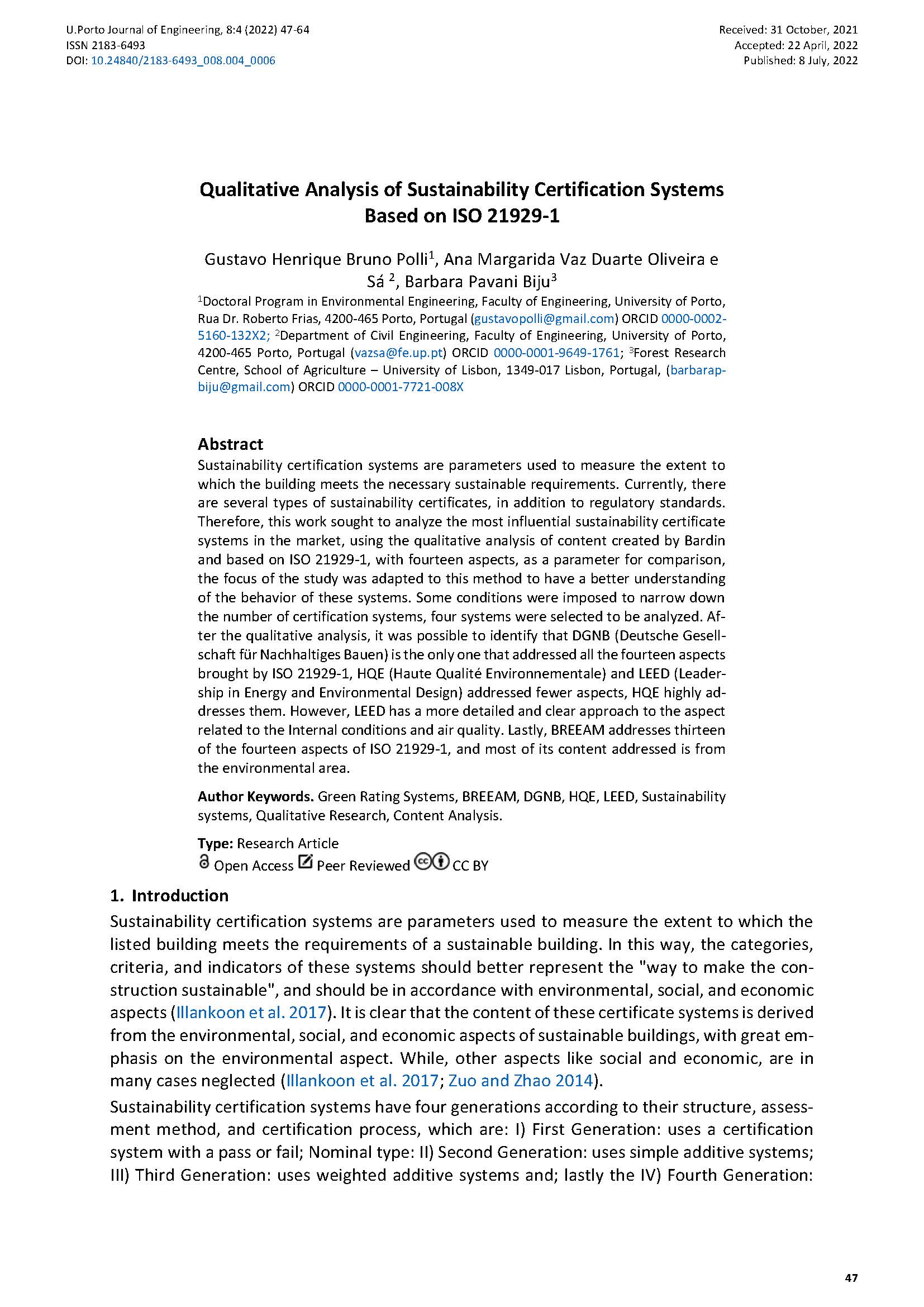Qualitative Analysis of Sustainability Certification Systems Based on ISO 21929-1
Main Article Content
Abstract
Sustainability certification systems are parameters used to measure the extent to which the building meets the necessary sustainable requirements. Currently, there are several types of sustainability certificates, in addition to regulatory standards. Therefore, this work sought to analyze the most influential sustainability certificate systems in the market, using the qualitative analysis of content created by Bardin and based on ISO 21929-1, with fourteen aspects, as a parameter for comparison, the focus of the study was adapted to this method to have a better understanding of the behavior of these systems. Some conditions were imposed to narrow down the number of certification systems, four systems were selected to be analyzed. After the qualitative analysis, it was possible to identify that DGNB (Deutsche Gesellschaft für Nachhaltiges Bauen) is the only one that addressed all the fourteen aspects brought by ISO 21929-1, HQE (Haute Qualité Environnementale) and LEED (Leadership in Energy and Environmental Design) addressed fewer aspects, HQE highly addresses them. However, LEED has a more detailed and clear approach to the aspect related to the Internal conditions and air quality. Lastly, BREEAM addresses thirteen of the fourteen aspects of ISO 21929-1, and most of its content addressed is from the environmental area.
Downloads
Article Details

This work is licensed under a Creative Commons Attribution 4.0 International License.
Authors who publish with this journal agree to the following terms:
- Authors retain copyright and grant the journal right of first publication with the work simultaneously licensed under a Creative Commons Attribution License that allows others to share the work with an acknowledgement of the work's authorship and initial publication in this journal.
- Authors grant the journal the rights to provide the article in all forms and media so the article can be used on the latest technology even after publication and ensure its long-term preservation.
- Authors are able to enter into separate, additional contractual arrangements for the non-exclusive distribution of the journal's published version of the work (e.g., post it to an institutional repository or publish it in a book), with an acknowledgement of its initial publication in this journal.
- Authors are permitted and encouraged to post their work online (e.g., in institutional repositories or on their website) prior to and during the submission process, as it can lead to productive exchanges, as well as earlier and greater citation of published work (See The Effect of Open Access).

